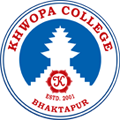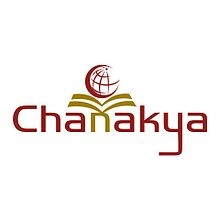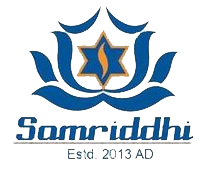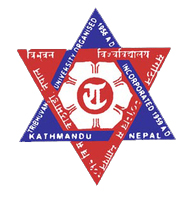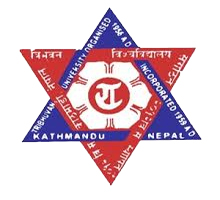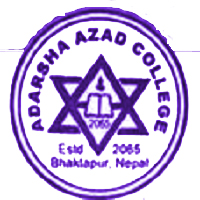Overview
Bagiswori College serves Bhaktapur’s learners with TU-based programs, clear rules, and a campus culture that values respect and steady effort. From +2 graduates aiming at BBS, BA, or BASW to bachelor’s graduates planning for MBS or MA in Sociology, the college offers a direct path backed by local support, scholarships, and open governance.
For intake dates, seat numbers, and current criteria, visit the college office in Tumacho, Kamalbinayak, Bhaktapur-9. Official notices carry the most recent updates for each academic year.
Introduction
The college began with a simple idea: expand access to higher education for local families at a reasonable fee. A group of socially aware residents founded the institution to support Bhaktapur’s goal of “One Graduate: One Family.”
As a community college under Tribhuvan University (TU), Bagiswori follows TU curricula and assessment rules. The campus culture values dignity, fairness, and service. Teaching, research activity, and public engagement are shaped by local needs and transparent governance.
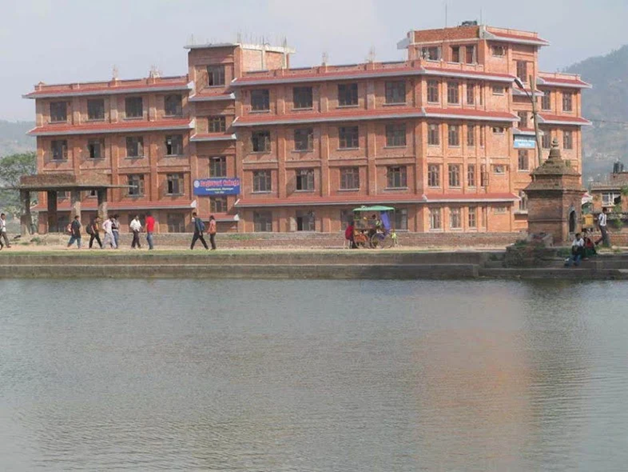
Quick Highlights
-
Location: Tumacho, Kamalbinayak, Bhaktapur-9, Nepal
-
Founded: 2007 AD (2064 BS)
-
Affiliation: Tribhuvan University
-
Type: Community college
-
Programs: BBS, BA, BASW, MBS, MA in Sociology
-
Student support: Counseling, scholarships, Student Quality Circle
-
Quality systems: IQAC, SAT, Academic Council
-
Research and improvement: Research Management Cell (RMC) and Research Committee
-
Administration: EMIS, Library, Examination Committee, Technical Support Section
-
Purpose: Access, affordability, accountability, and steady academic growth
Academic Programs Offered
Undergraduate Programs (TU)
Bachelor of Business Studies (BBS)
BBS builds a solid base in accounting, finance, economics, and management. Classroom learning is paired with case tasks, project work, and presentations set by TU. Graduates commonly look at entry-level roles in banking, accounting support, business operations, and entrepreneurship. Those planning for MBS later will find the BBS course map a practical first step.
Bachelor of Arts (BA)
BA covers humanities and social sciences. Students learn to read closely, write clearly, and reason with evidence. Subject choices help learners link ideas across culture, society, and public life. Graduates move toward fields like writing, media, development work, or further study.
Bachelor of Arts in Social Work (BASW)
BASW connects classroom study with community exposure. Field visits, placements, and reflective journals help students understand social issues first-hand. Topics often include community development, social policy, and human behavior. Many graduates continue with roles in NGOs, local bodies, or postgraduate study in social sciences.
Structure and duration: TU currently runs four-year bachelor’s programs. Internal evaluation and TU board exams apply.
Postgraduate Programs (TU)
Master of Business Studies (MBS)
MBS extends the BBS foundation. The program covers advanced management, research methods, and decision processes for business settings. Students practice analysis through term papers and seminars. Graduates target roles in finance, consulting, business development, or teaching, depending on interests and prior experience.
MA in Sociology
The MA studies social theory, research design, and social change in Nepal and beyond. Students examine institutions, culture, and policy questions through assignments and field-informed work. Graduates consider roles in research units, public agencies, NGOs/INGOs, or teaching based on qualifications and openings.
Structure and duration: TU master’s programs generally run two years on a semester pattern with internal work and end-semester exams.
Admission Process
Eligibility (reference: TU rules)
-
Bachelor’s level (BBS, BA, BASW): +2 or equivalent in any stream accepted by TU, meeting the minimum grade/aggregate set for that year.
-
Master’s level (MBS, MA Sociology): A relevant bachelor’s degree recognized by TU with required standing for the intake cycle.
Steps to Apply
-
Review the current intake notice and eligibility.
-
Fill the college form with correct personal and academic details.
-
Submit copies of academic certificates, character certificate, citizenship/ID, and photographs.
-
Attend orientation or interview if the program requires it.
-
Complete fee formalities within the given dates.
Seats, deadlines, and any test/interview steps follow TU and college notices for the academic year. For the latest schedule, visit the college office.
Teaching Faculty and Learning Methodology
-
Faculty members bring subject knowledge and local understanding into the classroom.
-
Course outlines follow TU standards with clear learning outcomes and timelines.
-
Internal tests, assignments, and project work prepare students for TU board exams.
-
BASW students complete field exposure with supervision and reflection.
-
Mentoring and academic counseling support study planning, exam readiness, and career decisions.
-
The Student Quality Circle and Feedback Collecting Committee channel student input into course delivery and services.
The approach is steady and practical: learn core ideas, apply them in tasks or field settings, and reflect on results.
Infrastructure and Learning Facilities
-
Library and Reading: Textbooks, reference materials, and prior exam resources are available. Reading spaces support quiet study and small group work.
-
EMIS and Notices: An Education Management Information System helps with records, communication, and timely updates.
-
Classrooms and ICT: Rooms support lectures, presentations, and small-group activities. The Technical Support Section helps with routine ICT needs.
-
Examination Support: The Examination Committee manages internal evaluation and coordinates TU exams.
-
Administrative Services: Administration, Accounts, Library, Store, and EMIS desks assist students with forms, payments, and records.
These facilities match the scale and purpose of a community college, keeping services close to the needs of local learners.
Student Life and Campus Experience
-
Orientation introduces new students to course plans, exam patterns, and support units.
-
Peer study groups grow around subjects and exam timelines, with guidance from faculty.
-
Community reach—especially through BASW—brings real-life context into learning.
-
A respectful campus atmosphere encourages open questions and steady improvement.
Students often say the college feels approachable: staff are visible, offices are easy to find, and decisions are explained through notices and meetings.
Extracurricular Activities (ECA)
-
Speaking and Writing: Debates, presentations, and reading circles connected to course topics.
-
Community and Culture: Events around social awareness, volunteer tasks, and cultural days tied to the calendar.
-
Sports and Wellness: Activities scheduled without clashing with exam periods.
-
Publication: The Publication Committee invites student pieces for newsletters or notice-board features.
ECA adds confidence and teamwork to the academic journey without distracting from study commitments.
Scholarships and Financial Support
-
Need-based and merit-based support is managed by the Scholarship Selection Committee.
-
Students from low-income families can apply under set criteria and timelines.
-
Notices on government or external support are shared through the office and Public Information Cell.
-
Lists, rules, and deadlines are transparent and reviewed each session.
If you plan to apply, prepare your academic records and income/supporting documents early to avoid last-minute issues.
Achievements and Institutional Milestones
-
2007 AD (2064 BS): Founding year at the eastern entry of Bhaktapur.
-
Program Growth: Addition of BA, BASW, MBS, and MA in Sociology under TU.
-
Quality Systems: Launch of IQAC and SAT for internal quality and self-assessment.
-
Research and Improvement: RMC activities, small research support, and internal seminars.
-
Service and Governance: Functional committees for exams, employment/promotion, ECA, feedback, publication, and public information.
These steps show a campus that grows with need, strengthens processes, and opens more paths for students over time.
Governance and Quality Assurance
Organizational structure
-
College Assembly, College Management Committee, CMC Chairperson, Principal, Vice-Principal
-
IQAC, Academic Council, SAT
-
Administrative Division: Administration, Account, Library, Store, EMIS, Technical Support Section
-
Academic Division: Faculty of Humanities and Social Science; Faculty of Management
-
Core academic/quality units: Research Management Cell, Research Committee, Examination Committee, Recruitment/Employment and Promotion Committee, ECA Committee, Feedback Collecting and Student Counseling Committee, Publication Committee, Public Relation and Information Committee, Scholarship Selection Committee, Student Quality Circle
These units help keep teaching on schedule, records in order, exams fair, and information open to students and families.
Why Choose This Institution?
-
Community Mission: A local college shaped by public interest, with attention to access and affordability.
-
TU Affiliation: Programs under a national university that employers and agencies recognize across Nepal.
-
Program Range: Management, humanities, social sciences—at both bachelor’s and master’s levels.
-
Student Support: Counseling, scholarships, and clear exam preparation practices.
-
Local Relevance: Field exposure in BASW and community-linked tasks across programs.
-
Accountable Culture: Quality committees, feedback systems, and public notices that explain decisions and timelines.
-
Location: An accessible site at the eastern entry of historic Bhaktapur.
For many learners, this mix—reasonable fees, a structured path, and a culture of service—makes higher study possible without leaving home.
Admission Tips for Applicants
-
Track the intake calendar early and keep copies of all certificates.
-
Clarify fee heads and due dates at the Accounts desk before payment.
-
Ask the Counseling Unit about course mapping if you plan to move from bachelor’s to master’s later.
-
If you seek scholarship support, submit documents within the announced window.
Small steps—like organizing your file and visiting offices during posted hours—save time and reduce stress.
Con
Bagiswori College serves Bhaktapur’s learners with TU-based programs, clear rules, and a campus culture that values respect and steady effort. From +2 graduates aiming at BBS, BA, or BASW to bachelor’s graduates planning for MBS or MA in Sociology, the college offers a direct path backed by local support, scholarships, and open governance.
For intake dates, seat numbers, and current criteria, visit the college office in Tumacho, Kamalbinayak, Bhaktapur-9. Official notices carry the most recent updates for each academic year.
Contact Details
Bagiswori College
Email Address: info@bagisworicollege.edu.np / bagisworicollege072@gmail.com
Phone Number: +977-1-6618319, +977-9851352422, +977-1-6620550
Website: https://bagisworicollege.edu.np
Location: Tumacho,Kamalbinayak Bhaktapur-9,Nepal


